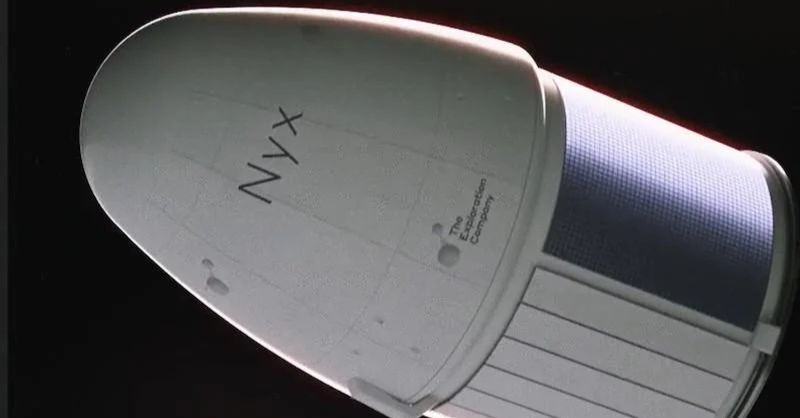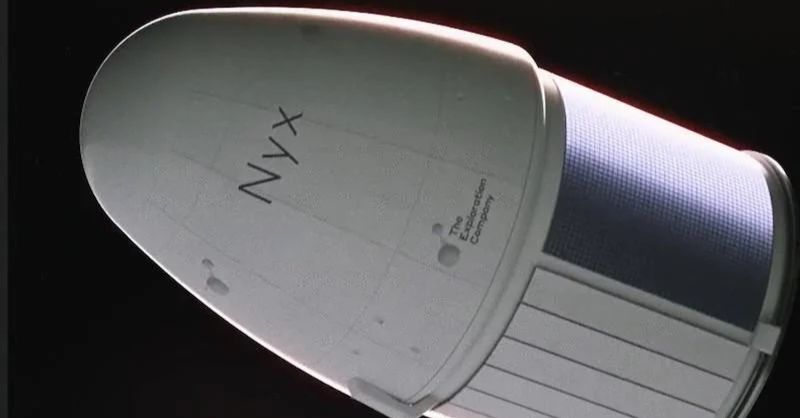
In a field long dominated by U.S. giants like SpaceX, Europe is making moves to carve out its place in the cosmos. The Exploration Company, a young aerospace startup spanning Germany, France, and Italy, has raised an impressive $160 million in Series B funding to develop Nyx, its reusable space capsule.
The goal? To create Europe’s first independent cargo delivery system for the International Space Station (ISS). The capsule, designed to carry up to 3,000 kilograms of cargo to and from Earth, represents a bold step toward European space autonomy. Its maiden flight to the ISS is targeted for 2028, setting the stage for a new era in global space transportation.
Back in early September, we also reported about one Italian spacetech startup Involve that secured €2.5M for stratospheric balloon technology. It’s an interesting startup too.
Breaking away from NASA’s shadow
Currently, only two companies—SpaceX and Northrop Grumman—handle cargo deliveries to the ISS, both of them American. The Exploration Company is determined to change that. Co-founder and CEO Hélène Huby in one of the online portals explained that the uniqueness of their mission are that they are the first company in the world where this is for the first time mainly funded by private investors. Unlike SpaceX’s Dragon capsule, which relied heavily on NASA funding, Nyx is being built with a mix of private and sovereign European investment.
The funding round was led by Balderton Capital and Plural, alongside participation from major names like Bessemer Venture Partners, NGP Capital, and sovereign funds such as French Tech Souveraineté and DeepTech & Climate Fonds. This brings the company’s total funding to $208 million, a strong financial backing for its ambitious plans.
The push for European space leadership
The European Space Agency (ESA) has taken note of the need for homegrown space solutions. Earlier this year, the agency awarded The Exploration Company a €25 million ($27 million) study contract to develop cargo return services. This contract is part of ESA’s broader goal of launching at least one European capsule to the ISS by 2028.
The parallels with NASA’s Commercial Orbital Return Transportation Services (COTS) program are striking. Just as NASA’s COTS initiative helped launch SpaceX into global prominence, ESA’s support could prove pivotal for The Exploration Company’s future.
The Exploration Company isn’t just banking on public funding. About 90% of its $770 million contract backlog comes from private companies, including commercial space station developers Vast, Axiom Space, and Starlab. This dual support from public and private sectors highlights the demand for alternatives to U.S.-centric space logistics.
Even with some early hiccups—the company’s first demonstrator vehicle wasn’t deployed due to an issue with the Ariane 6 rocket’s upper stage—The Exploration Company is moving forward. Its second sub-scale demonstrator mission, aptly named Mission Possible, is set to launch on a SpaceX Falcon 9 next year.
Inspired by SpaceX but aiming to compete
While The Exploration Company looks to SpaceX for inspiration, it’s clear they’re aiming to carve out their own identity. Reportedly, Huby told that he highly respected what SpaceX has been able to achieve. He further also told that they were inspired by what they have achieved, but also believe the world needs more competition.
This humility, coupled with a clear vision, could be a driving force as the company takes on the complex challenge of developing reusable spacecraft.
What do we think about the update
The Exploration Company’s journey is just beginning, but the stakes are high. With $160 million in fresh funding and contracts with both ESA and private players, the startup is poised to make a mark on the global space industry. Yet, the road ahead won’t be easy. Competing with established giants like SpaceX will require not just innovation but also flawless execution and the ability to adapt to an ever-evolving industry.
Still, the dream of creating a European space logistics leader is no longer just a dream. If The Exploration Company succeeds, it won’t just deliver cargo to the ISS—it will deliver on Europe’s long-standing ambition to be a significant player in the space race.
The post The Exploration Company raises $160M to bring Europe’s reusable space capsule to life appeared first on Tech Funding News.
